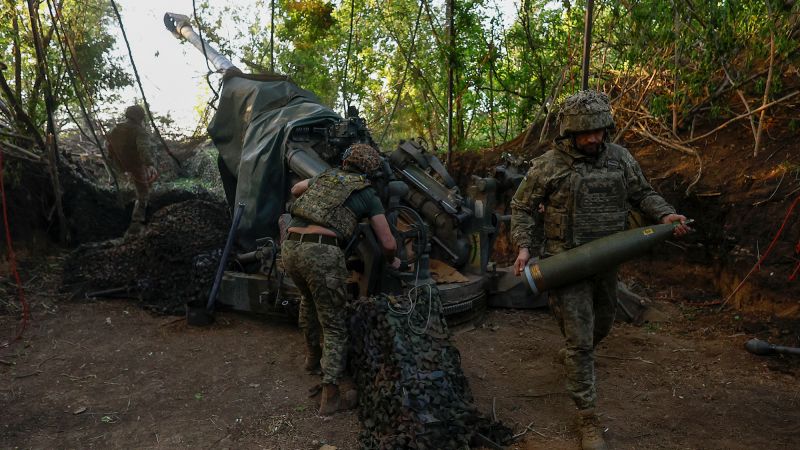Bankir and his men have been trying to fight off Russian attacks along the Ukrainian front lines for more than two years. But it’s only now that they are finally able to strike where it hurts: Inside Russia’s own territory.
The newly granted permission by the United States and other allies to use Western weapons to strike inside Russia has had a huge impact, Bankir said. “We have destroyed targets inside Russia, which allowed for several successful counteroffensives. The Russian military can no longer feel impunity and security,” the senior officer in Ukraine’s Security Service (SBU) told CNN. For security reasons, he asked to be identified by his call sign only.



There’s probably also some twisted logic where you can think of Crimea differently - it has natural borders that Russia stopped at, they had a history of it using it for a major naval port, etc …… it’s easier to take the appeasement role when it looks like Russia had a stronger case and they will stop.
It’s a lot harder to make that leap when Russia flat out invades and the goal is subjugation of an entirely independent country. Even Putin must see the difference
Judging by what I’ve heard from the actual Russian authorities over the years, even before this invasion, for Russians Ukraine was seen as a natural part of Greater Russia (remember, Ukraine was part of the Soviet Union throughout its entire existence and even some leaders of the Soviet Union were Ukranian).
Even outside Russia you can see this natural acceptance of Ukraine as a place that Russia has a say over, in the arguments of traditional Communists, especially the older ones who learned their version of the ideology from Soviet Union propaganda.
Remember, Putin and those who surround them wouldn’t be reasoning from a Western European point of view, they would be reasoning from a Russian point of view and might very well expect that Western Europe would react to Russia’s invasion as being a natural clawing back of a region that broke away during a period of revolution (for which there is quite a lot of Historical precedent all over Europe).
I mean, if you look at the reaction of several European nations with regards to what Israel is doing in Gaza, a significant portion of the XIX century mindset (which includes Imperialism) is de facto alive and well amongst a significant portion of the European elites if often morphed in the whole “areas of influence” variance that justified US interventions, so it’s hardly surprising that a Russia whose leadership has that same mindset would expect that the reaction of European and in general Western political elites would be the usual perfomative theatre of “Freedom & Democracy” whilst not really doing anything when either is threatenned in “countries which are not like us” (and if you look at how German politicians reacted at the start of the Invasion, that seemed to be very much what they were going for).
PS: Mind you, I do think your point is absolutelly right when it comes to explaining the difference in reactions in the West. My point is that it seems natural that the Russian expectations about the reaction in the West, coloured as they were by their own mindset, underestimated the probability of the kind of reaction that did end up happenning, so the pros and cons considerations about “is it worth it?” before they actually went ahead and invaded, would have tilted more strongly than otherwise towards it being worth the risk.
Further, if Russia did succeed in their original target of a decapitation attack on Ukraine within 3 days, I very much suspect that the reaction on the West would be lots of bitching and moaning quickly followed within a couple of years by a “pragmatic” (read: driven by Economic interests) acceptance of the “facts on the ground” and return to normal.